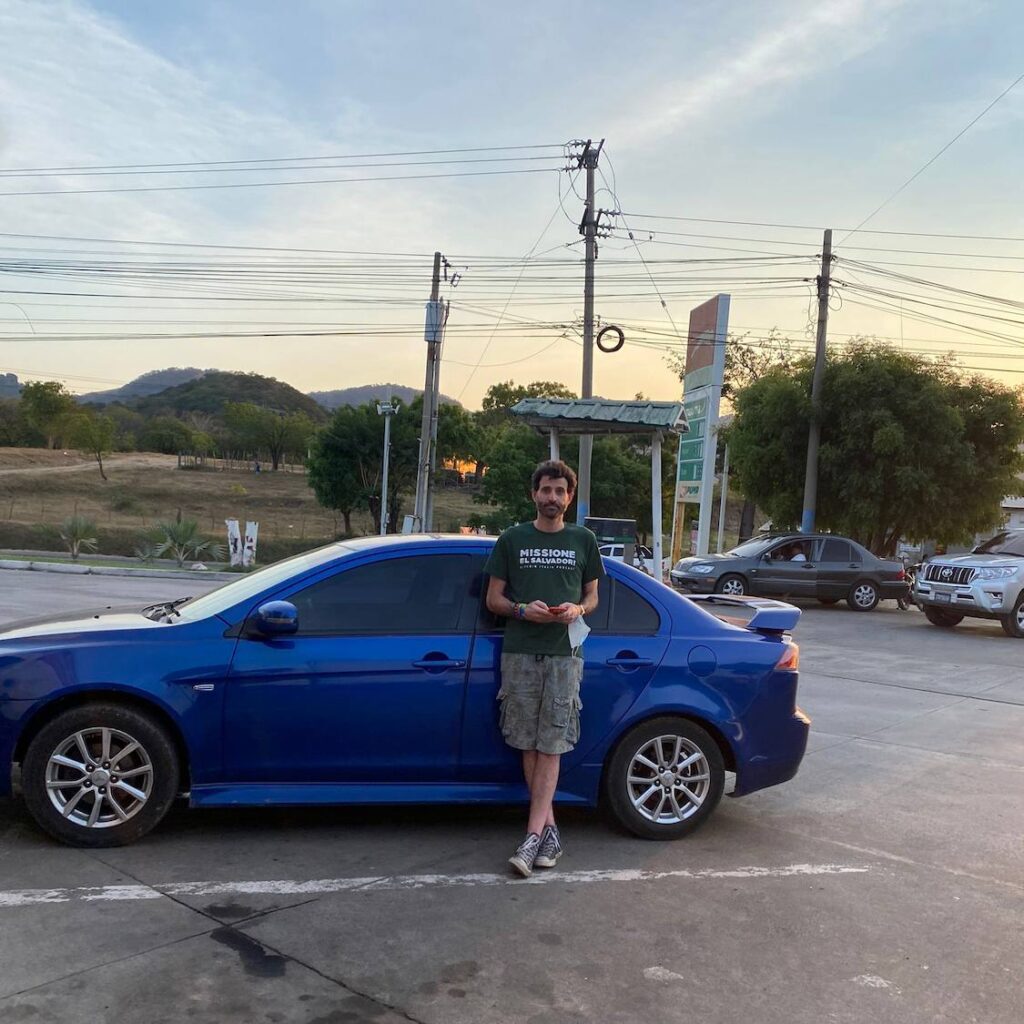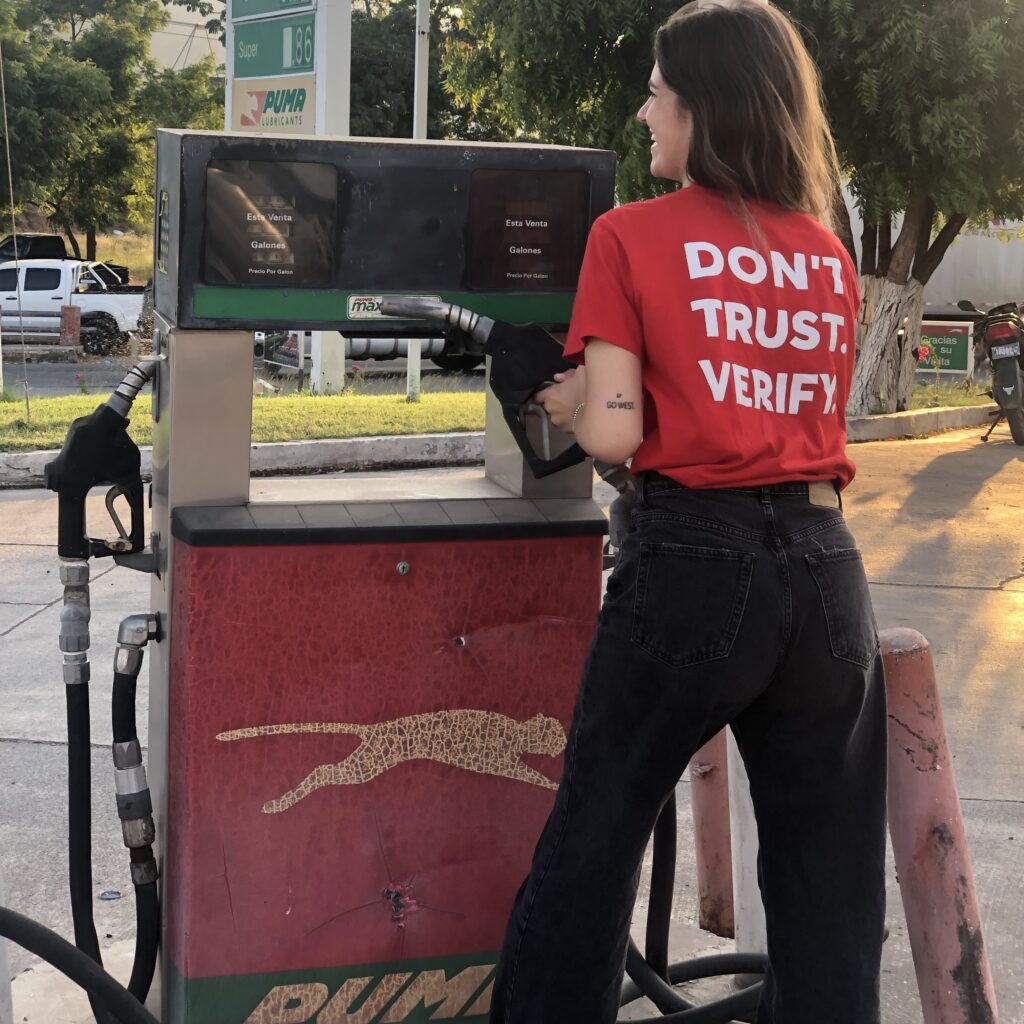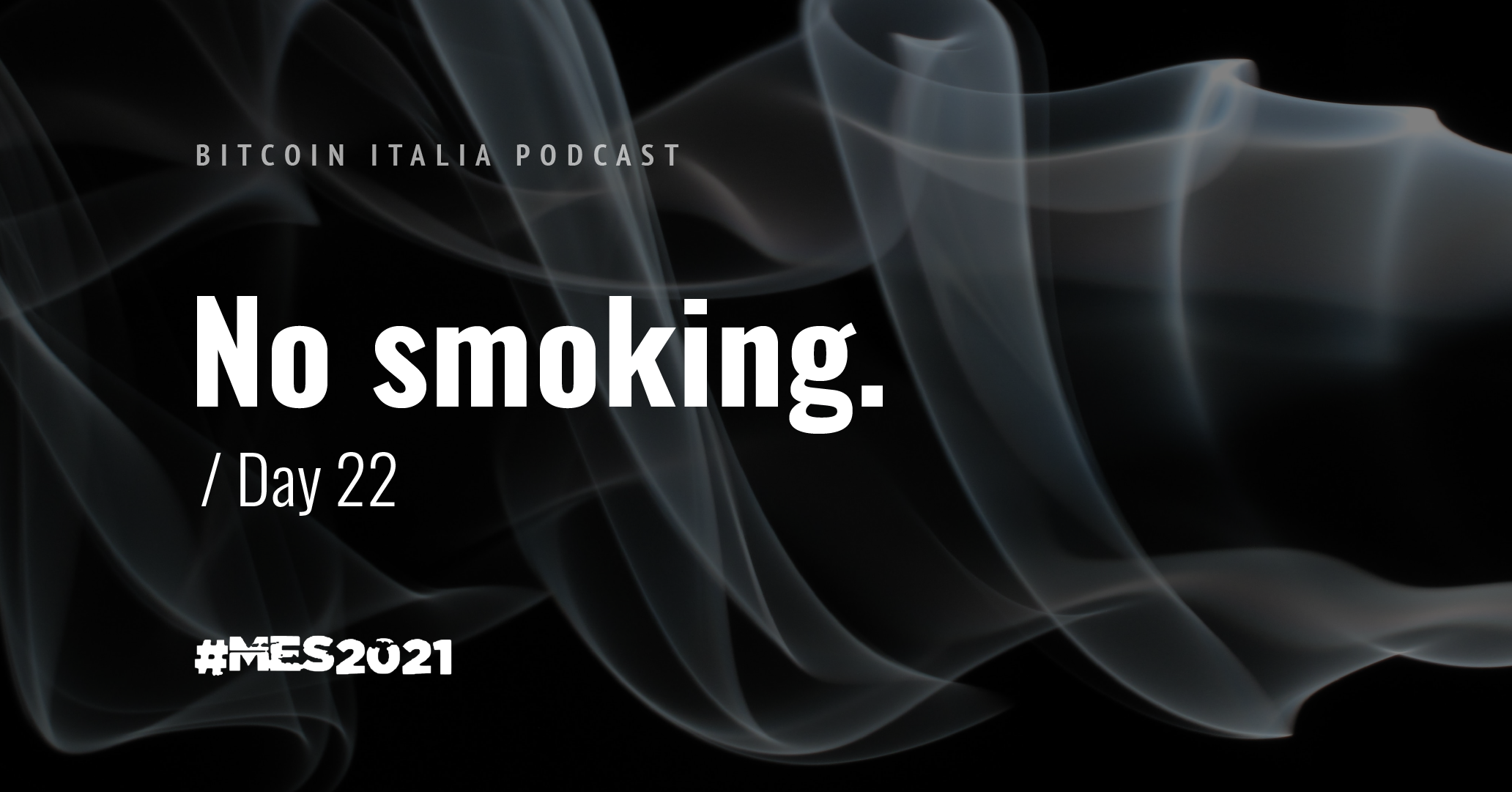

As our Bitcoin car heads towards La Union we really realize that we are relaxing too much and our nerves are not stretched to the right point towards the challenge we have set ourselves. Once again we have problems with hotels. During the trip we call dozens of them. There is nothing we can do. No one accepts Bitcoin. We only find one that theoretically would accept it but has problems with “the system”. We try to figure out what the problem is but over the phone it’s hard. The receptionist tells us that the hotel is near a Chivo ATM and that we could withdraw cash there but we refuse. We don’t like it that way.
So we decide to change our destination. If no one in La Union wants our money from the future, we focus on the neighboring towns. After a few attempts, luck helped us and we found a really nice hostel. We are in Santa Rosa de Lima. Never heard of it. Put on the map for the occasion. This is also the beauty of our adventure. We’re not driving. It’s Satoshi.
We arrive when it’s already dark. The city is small. A maze of dirt roads and shirtless people. We even get lost before finding our way, ending up in a neighborhood that worries us a bit. But maybe it’s just suggestion, it’s been a long day and we’re really tired. We arrive at the hostel and are warmly welcomed. It’s brand new and will do the trick. It is run by a family of local entrepreneurs. They are very talkative and invite us to have dinner with them. On the menu are tacos and Pepsi. We gladly accept. The company is delightful and the food is homemade and tasty. We make friends. We are the first Italians to come here and the first to ask to pay in Bitcoin. When they ask us what we do they are intrigued and of course we take the opportunity to hand out some orange pills. While we are talking the young son of the owner, who answered the phone when we made the reservation, says that if they, as merchants, didn’t accept Bitcoin they would only risk losing customers. When we tell him that the only reason we are there is because his establishment is the only one within miles to do so he is surprised and beats his fist on his chest proudly.
We sleep well even though the town is a bit noisy, especially at night. During the day we have to work, write and tape content. It’s Christmas week, there are two episodes of the Bitcoin Italia Podcast to record and the third season to wrap up. We manage to put our noses out that it’s late afternoon. Santa Rosa is an unimaginable mess of traffic and sounds. The center is crowded. Stalls everywhere. Goods carried on heads. An uproar of horns. The houses are low, the streets particularly bumpy. It is a town of commerce and frontier, we discover, we are just a few kilometers from the border with Honduras. Traditionally, gold has been traded here. In the immediate vicinity there were mines that were quite productive, but the veins of metal have long since been exhausted. However, the tradition has remained. Strange that there is so much distrust of digital gold.
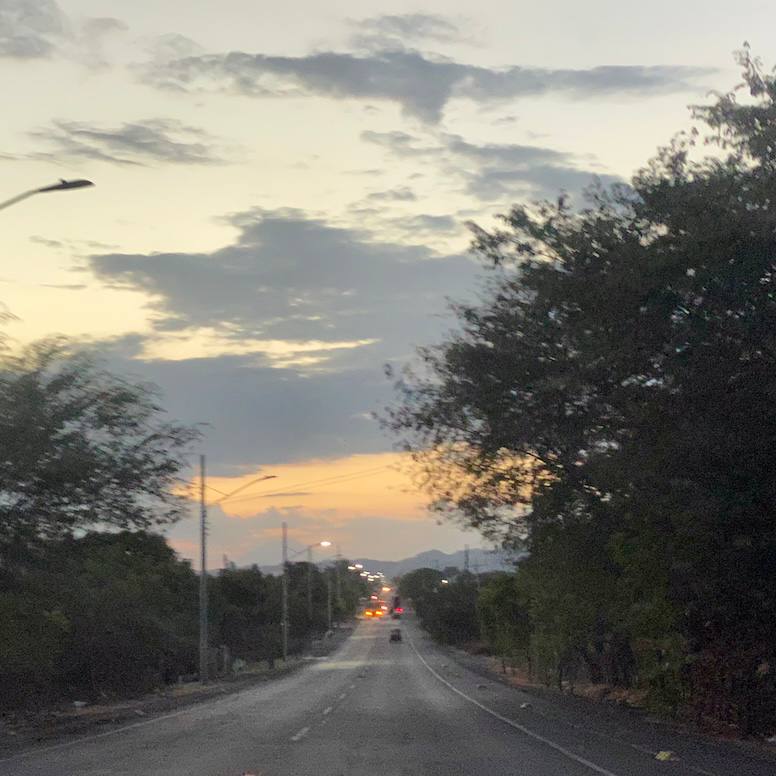
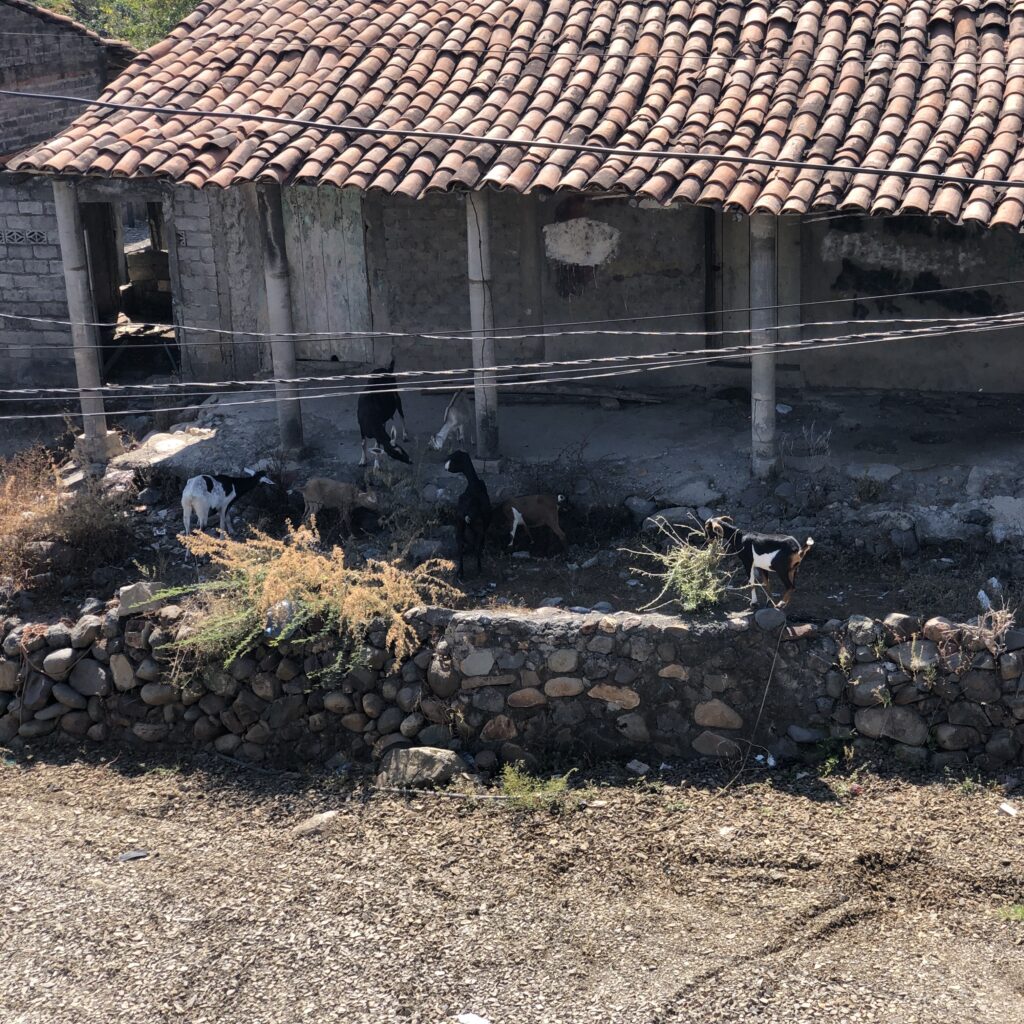
We are out of cigarettes. Again. We know the best card to play are the gas stations. There are several in the area and we decide to give them a try. We go into the first one, the Chivo logo is on display at the entrance. When we ask to pay, we are told that the app doesn’t work. We ask why, saying that we have just used it to pay the hostel, but they give us stuttering answers. We try a second one and then a third. Same answer. We seem to guess what the problem is. Gas stations use a company smartphone to run the app. Since the update, as we have been telling you, Chivo 2.0 requires you to re-enter your personal data and two-factor authentication again. The apps are blocked for this reason. The email with the code arrives at who knows what company address and even the SMS code will be set to who knows what number of who knows what company executive. A real idiocy. We try a dozen or so but there’s nothing we can do. They all have the application plumbed in. However, this also tells us one clear thing: nobody here uses Bitcoin.
We return to the hostel defeated. No smoking today. My mom will be happy to read this.
We find the hostel owner in a chatty mood. He is sixty-two years old. We talk about politics. He tells us how, as a trader, he is in daily contact with corruption at all levels. He tells us about the civil war. About his family, small landowners who had to flee the fury of the guerrillas. Just because they had little land and were relatively well-off, they were seen as enemies to be put down. How he enlisted in the army precisely in retaliation for this injustice, while his first cousins were all in the mountains, among the ranks of the FMLN. Broken families, ready to shed their own blood. This is what it’s all about. He tells us of the nightmares that still keep him awake at night. Of the ambushes in the jungle. Of the friends mowed down by machine guns. Of the people he has seen killed and who he has killed. Of the cities emptied by fear.
A different story than the one we told yesterday of course. But the truth is never on just one side.
